Presentation of the 2014 Israeli Democracy Index
The President's Residence
Jerusalem
Participation by invitation only
On Sunday January 4, 2015 at 10:00 a.m., IDI President Yohanan Plesner and Prof. Tamar Hermann presented the 2014 Israeli Democracy Index to President Reuven Rivlin at a ceremony at the President's Residence. The 2014 Index focuses on the Israeli public's views on the country's socio-economic situation and its effect on Israeli democracy.

President Reuven (Ruvi) Rivlin reads the 2014 Democracy Index after its presentation
Headed by Prof. Tamar Hermann, Director of IDI's Guttman Center for Surveys, the annual Israeli Democracy Index has been the leading barometer of perceptions of the quality of Israeli democracy since its first publication in 2003. Based on an extensive survey of a representative sample of the adult population in all sectors of Israeli society, the report provides critical insights regarding trends in public opinion regarding the preferred form of government, the functioning of the political system, the behavior and performance of elected officials, and the realization of key democratic values. Analysis of its results may contribute to public discussion of the status of democracy in Israel and create a cumulative empirical database to intensify discourse concerning such issues.
The 2014 Israeli Democracy Index is the twelfth in a series of reports published since 2003 that examine the institutional, procedural, and perceptual aspects of Israeli democracy on a regular basis. The purpose of this report is to provide a comprehensive and up-to-date portrait, and at the same time to identify trends of change and elements of stability in Israeli public opinion in the political and socioeconomic spheres.
This year’s survey (which forms the basis of the Democracy Index) focused on social and economic concerns, which are also the subject of the first chapter. In the second chapter, we address various aspects of Israel’s political and government systems. The third chapter deals with Israeli society, while the fourth chapter examines Israel's ranking in international democracy indicators.
It is important to note that the survey was conducted in the spring of 2014, prior to Operation Protective Edge, which took place in Gaza during the summer. Given everything that happened in Israel during that turbulent period, some of the data may seem questionable from a post-war perspective. But the findings are accurate reflections of the time and may well hold true in future when the dust settles from the Operation.
Readers should bear in mind, moreover, that the survey on which the Index is based measures the feelings, opinions, and judgments of the general public, meaning that this is not an “objective” or professional assessment of Israel’s situation.
It is our hope that the wealth of data presented will help readers gain a better understanding of the map of public opinion in Israel on issues related, directly or indirectly, to Israel’s democratic character, and will assist scholars in their writing and research. For this reason, the raw data used in the Index will also be available to the public (in SPSS) on the Israeli Democracy Index page on this website.
Note that the English Israeli Democracy Index is an abbreviated version of the Hebrew original. The full text includes many additional figures and analyses.
The questionnaire for this year’s Democracy Index survey was compiled in March–April 2014 and consists of 63 content questions and 12 socio-demographic questions. Of these, slightly less than half are recurring questions asked each year. Note that certain questions, due to their emotional content or specific relevance, were posed to Jewish respondents only (for example, the question regarding Israel’s definition as a Jewish or a democratic state).
The data were collected by the Dialog Institute in phone interviews conducted between April 28 and May 29, 2014. The Hebrew questionnaire was translated beforehand into Russian and Arabic; the interviewers who administered these versions were native speakers of these languages. A total of 148 respondents were interviewed in Arabic and 59 in Russian.
The study population was a representative national sample of 1,007 adults aged 18 and over. The maximum sampling error for a sample of this size is ±3.2%.
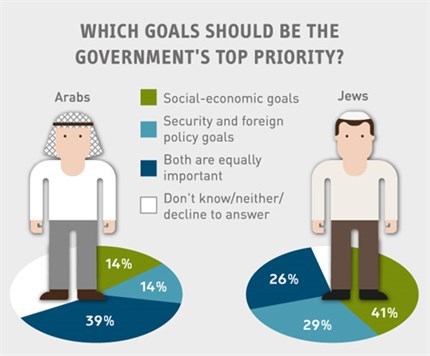
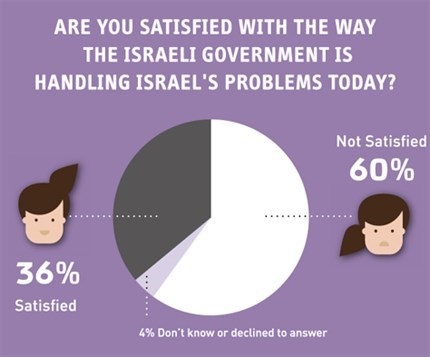
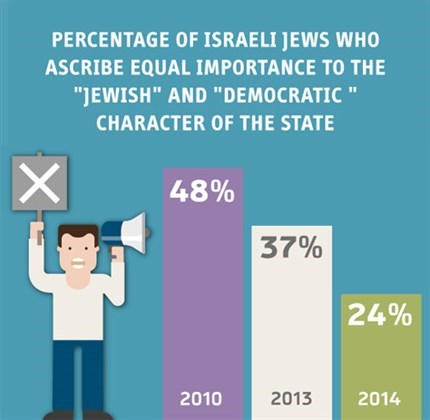
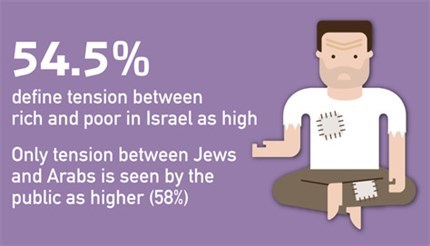
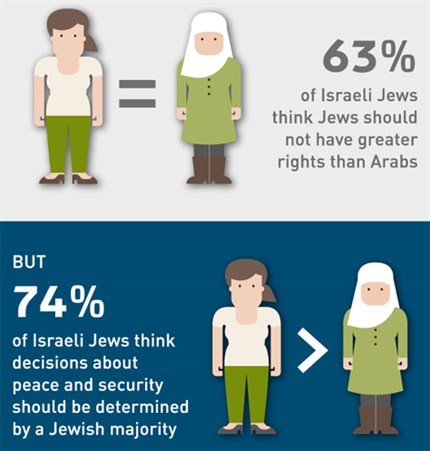
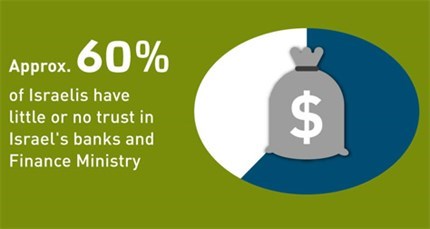



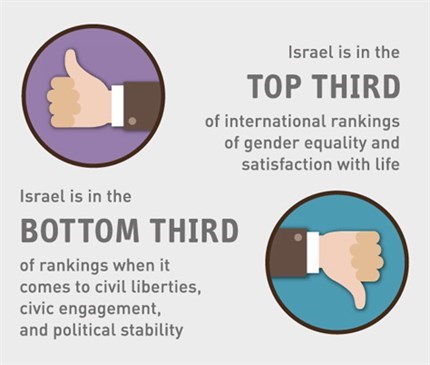
Note that the English Index is an abridged version of the Hebrew original. The full Hebrew text includes additional figures and analyses.
The Israeli Democracy Index 2014 (English)
The Israeli Democracy Index 2014 (Hebrew)
The Israeli Democracy Index 2014: Highlights (English)
SPSS File
To access the Israeli Democracy Index of previous years in both Hebrew and English, click here.
